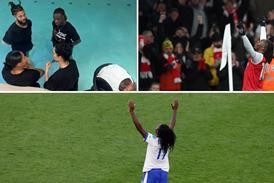Archbishop Nichols’ appointment sees the return of a British cardinal to the most senior rank in the Catholic Church since Cardinal Cormac Murphy-O’Connor lost voting rights on turning 80 in 2012. Pope Francis was elected by a conclave that did not include a British cardinal.
The appointment of cardinals from Haiti, Burkina Faso, the Philippines, Ivory Coast and Nicaragua indicates the Pope’s desire to put the world’s poor at the heart of Vatican strategy and leadership. Pope Francis’ choice of Archbishop Orlando Quevedo, of Cotabato in the Philippines, over more obvious candidates with larger geographical responsibilities has surprised some Vatican watchers. He has, however, been described by the head of the Philippines’ Bishops’ Conference as ‘an intellectual giant with a very simple lifestyle’ ? which makes his appointment perhaps less surprising.
Archbishop Nichols’ appointment has raised some eyebrows because of statements he made in 2011 which were ostensibly in favour of equal marriage for gay people. Commentators have pointed to both his ending of so-called ‘Soho masses’ for gay and lesbian Catholics in London and the fact that he had been allowing them to happen as factors in his appointment now. Nichols’ key role in creating the Common Good document which criticised greed in the City and the desirability of British representation in the conclave may have been more relevant factors.


























